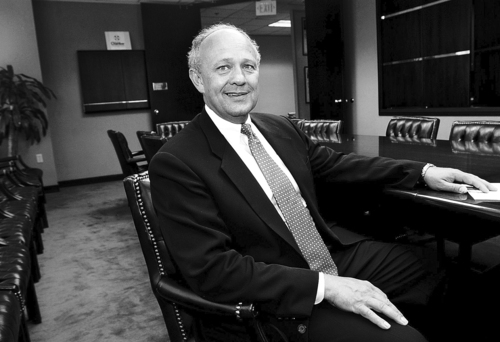This is an archived article that was published on sltrib.com in 2011, and information in the article may be outdated. It is provided only for personal research purposes and may not be reprinted.
You would be hard-pressed to find an issue on which leaders from business, government, faith, law enforcement, labor unions and conservative libertarian and liberal human rights groups all agree. And you would think if these disparate groups would come together on an issue, the federal government would have the courage and leadership to address it.
Yet there is an issue that all these groups agree on, and their agreement has yet to spur action in Washington. That issue is immigration reform. These diverse groups all agree our current immigration system is fundamentally broken and the federal government must act.
Law enforcement officials experience firsthand how harsh immigration laws make immigrants less likely to come forward to report a crime or assist in an investigation and divert police resources away from preventing and solving dangerous crimes. Faith leaders and human rights advocates experience firsthand how our enforcement of immigration laws arbitrarily and systematically tears apart families.
And business and labor leaders experience firsthand how our current system frustrates the ability of companies to recruit the workers they need to grow and create American jobs.
America is a country of immigrants. American values find perhaps their greatest expression in the Statue of Liberty, a monument that in no uncertain terms reaffirms our commitment to openness to immigrants.
And immigration is about more than American values. It's also about American prosperity. As we try to keep the U.S. and Utah economies growing, immigrants are the best solution to American job creation. The quickest way to put 104,000 Utahns back to work is to grow the economy, and we need immigrants to help make it happen.
The labor market is not a zero sum game, and the notion that immigrants are taking American jobs is a myth that bears no relation to the realities of the labor market. Studies estimate every temporary high-skilled immigrant worker creates five additional jobs, because these workers tend to work in growth areas like research and development.
Similarly, at the lower-skilled end, studies show each farm job creates three additional jobs in areas like management and manufacturing. The simple fact is companies need a variety of types of workers to grow. When educational, cultural or geographic limitations bar native-born Americans from filling a certain role, immigrants from all over the world can come and fill it. When they do, more jobs are created for American and Utah workers.
But our current system makes it simply too difficult to recruit necessary workers. High-tech companies are moving offices to Vancouver, Canada, because their engineers and programmers can't get visas. Manufacturing companies are moving their trade shows to Latin America because their buyers can't get tourist visas. Farms are moving their operations to Mexico and elsewhere because they can't get workers to harvest their crops.
Utah legislators have been responsible for keeping families together and helping businesses thrive with sensible legislation aimed at fixing our immigration system. These lawmakers have strengthened families by allowing businesses to sponsor workers directly from Mexico.
Yet we can only do so much in Utah. Immigration is a federal issue, and only Washington can make the changes we need to create jobs and be true to our values.
That's why we support groups like the Partnership for a New American Economy, which brings businesses and mayors together to make the economic case for immigration reform, and Conservatives for Comprehensive Immigration Reform, which brings evangelical leaders together to advocate for better immigration laws.
It is time to get serious about reaffirming who we are and where we want to be in the world. We urge our leaders in Washington to take action and fix our broken immigration system now.
Lane Beattie is Salt Lake Chamber president; Mark Shurtleff is Utah attorney general.



